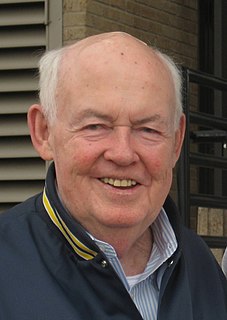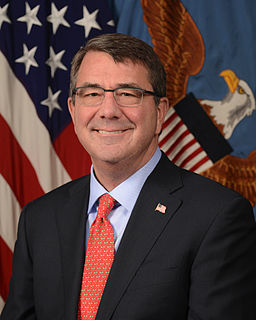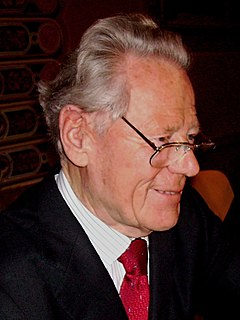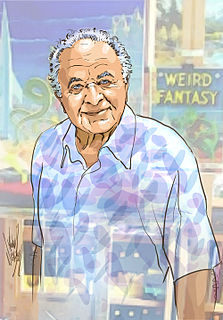A Quote by Conrad Black
For all history up to the end of the Cold War, summit meetings were historic and dramatic occasions, when leaders who controlled the destiny of much of the world met to change the world.
Related Quotes
The twentieth century had dispensed with the formal declaration of war and introduced the fifth column, sabotage, cold war, and war by proxy, but that was only the begining. Summit meetings for disarmament pursued mutual understanding and a balance of power but were also held to learn the strengths and weaknesses of the enemy. The world of the war-or-peace alternative became a world in which war was peace and peace war.
The bipolar world of the Cold War is history. The new world order, however, is not the One World dreamed of by Wilsonian idealists. It is a Balkanizing world where race, tribe, culture and creed matter most, and democracy is seen not as an end in itself but as a means to an end - the accretion of power by one's own kind to achieve one's own dreams.
For 40 years we were led to think of the Russians as godless, materialistic and an evil empire. When the Cold War ended, we suddenly discovered that Russia was a poor Third World country. They had not been equipped to take over the world. In fact, they were just trying to improve a miserable standard of oppressive living, and couldn't. They had to spend too much on arms build-up. We didn't win the Cold War; we bankrupted the Russians. In effect, it was a big bank exhausting the reserves of a smaller one.
The Philippines and the U.S. have had a strong relationship with each other for a very long time now. We have a shared history. We have shared values, democracy, freedom, and we have been in all the wars together in modern history, the World War, Second World War, Cold War, Vietnam, Korea, now the war on terrorism.
Warsaw's historic heart was deliberately almost entirely destroyed towards the end of the Second World War by the German occupying troops. After the war, it was painstakingly rebuilt and that reconstruction is perceived as expressing the nation's determination to survive, to conserve its history and its culture.
Out of these troubled times, our fifth objective - a New World Order - can emerge. . . Now, we can see a New World Order coming into view. A world in which there is a very real prospect for a New World Order. . .A world where the United Nations, freed from a Cold War stalemate, is poised to fulfill the historic vision of its founders.
Big meetings and big talk are not enough in a world that is hungry for change. Big action - world leaders keeping their promises, and developing countries committing resources while listening ardently to the voice of the small farmer - is needed to bring big results and prosperity to the world's poor.
History of America, Part I (1776-1966): Declaration of Independence, Constitutional Convention, Louisiana Purchase, Civil War, Reconstruction, World War I, Great Depression, New Deal, World War II, TV, Cold war, civil-rights movement, Vietnam. History of America, Part II (1967-present): the Super Bowl era. The Super Bowl has become Main Street’s Mardi Gras.



































